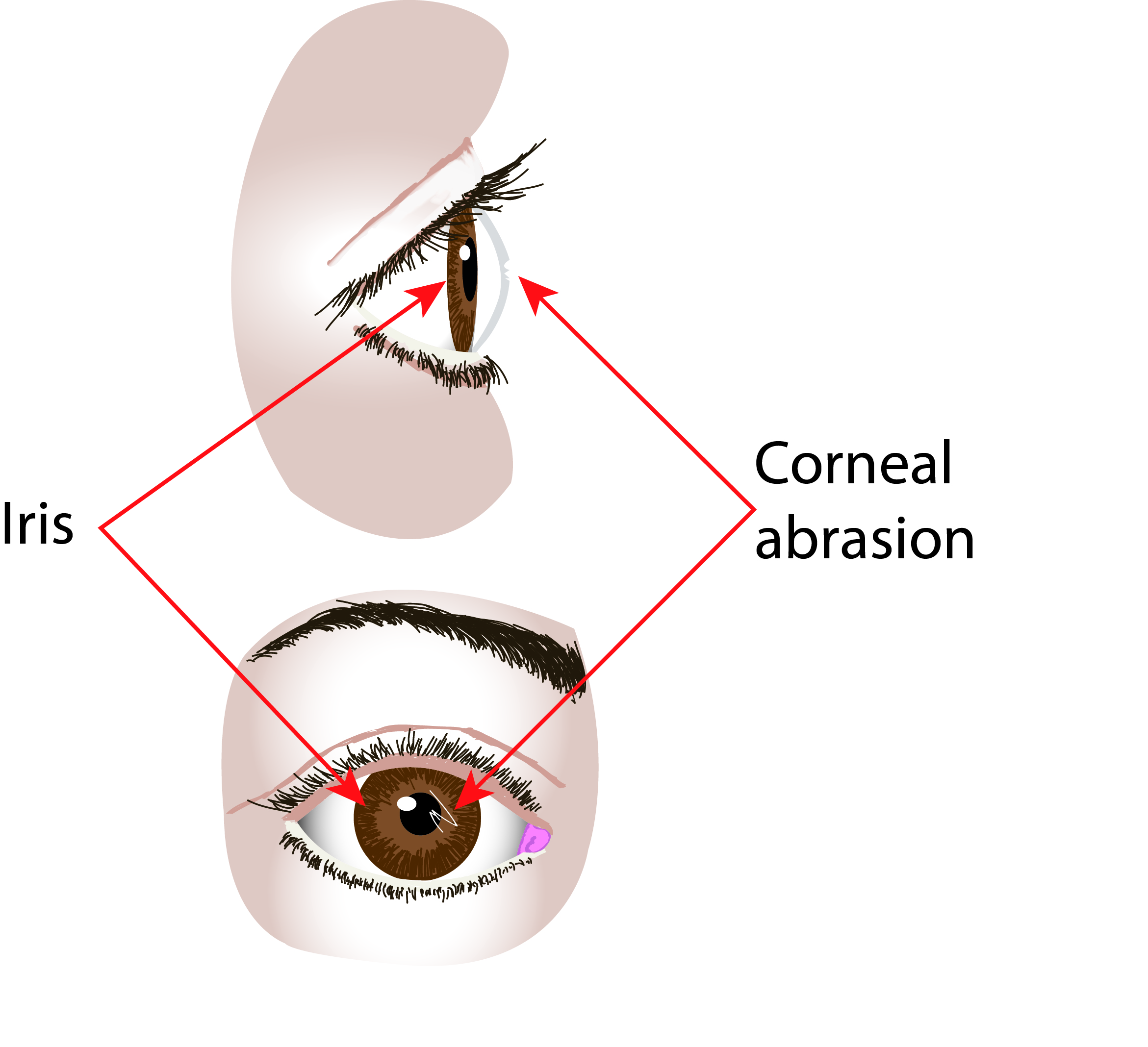Corneal abrasion
Information for patients from Ophthalmology
This leaflet is not meant to replace the information discussed between you and your doctor, but can act as a starting point for such a discussion or as a useful reminder of the key points.
What is a cornea?
The cornea is the clear tissue covering the front of your eye. It is the main focusing element. Light shines through it to the back of your eye, allowing you to see.

What is a corneal abrasion?
A corneal abrasion happens when the surface of the cornea is damaged. If the nerves are exposed your eye becomes painful.
How long will the abrasion take to heal?
With treatment, corneal abrasions heal within one to two days. Larger or deeper abrasions may take longer.
How will I know that I have an abrasion?
You may have a corneal abrasion if you have one or more of the following symptoms.
Pain or the feeling you have something in your eye (a foreign body sensation).
Watering or a sticky discharge from your eye.
Light sensitivity (your eye hurts when exposed to daylight).
Redness.
Swollen eyelids.
Reduced vision.
What causes a corneal abrasion?
A corneal abrasion is a common eye injury which can happen at home, at work, or during your leisure time. Common causes include:
foreign bodies (such as small particles) on the surface of your eye, or underneath your eyelid
scratches caused by fingernails, plants, twigs, paper, or card
blunt injury, for example being hit with a squash ball or fist; or
contact lenses.
How is a corneal abrasion treated?
Your eye will be examined by a doctor or a nurse using a slit lamp microscope to check your injury (a local anaesthetic drop to numb the area may be needed to do this). Your treatment will depend on the size and depth of your corneal abrasion.
You may be given antibiotic ointment which will be put into your eye and a pad will be placed over your eye. This allows your eye to rest and prevents your eyelid from rubbing away the new cells that are repairing your cornea. Alternatively you may be given a drop which will dilate (make bigger) your pupil to relieve muscle spasm of the iris (the coloured part of your eye). Again a pad may be put over your eye.
Will the treatment hurt?
Depending on how bad your abrasion is, the antibiotic ointment/drops may sting when applied. This is normal and will not last long.
Will I have to stay in hospital?
You will be treated for your corneal abrasion as an outpatient. Some patients may be admitted to hospital overnight, but this is rare and will be discussed with you by your doctor or nurse.
Are there any side effects to either treatment?
If you have have been given the drop, when the pad is removed your pupil may still be enlarged and your vision slightly blurred. The effects of the drop could last for at least four hours.
Is there anything I should avoid after my treatment?
For safety reasons do not drive or operate machinery whilst wearing the eye pad or whilst your vision is affected by the drops.
Will I need a follow-up appointment?
Whether you have a follow-up appointment will depend on how bad your abrasion is. You will discuss this with your doctor or nurse before you leave hospital.
Further information
If after reading this leaflet you have any further questions or concerns, please speak to your GP or optometrist.
How do I look after my eye at home?
You may have been given antibiotic eye drops or ointment to take home, and to help prevent infection. The following outlines which medication you have been prescribed and how long you need to use it for.
Name of medication:
Please start drops on:
Please wear your patch until:
A bandage contact lens may also be used. This is designed to protect an injured or diseased cornea from the mechanical rubbing of your blinking eyelids, which will allow your cornea to heal.